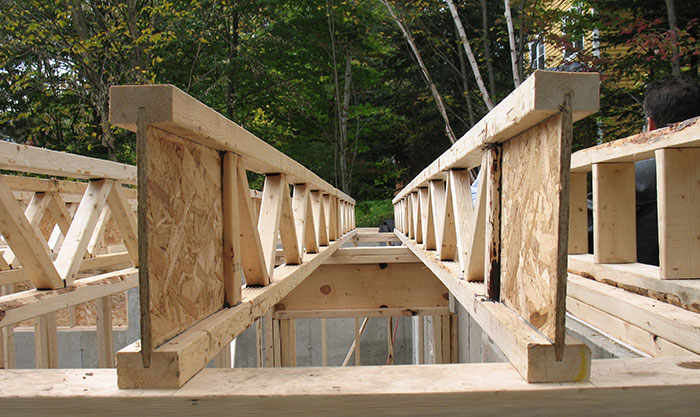
Green building is trending strongly. Many designers, engineers and builders are realizing the importance of sustainability for their customers. The hunt for green building materials is on. If you’re looking, you’ll find joists that are an excellent choice for green building construction. Green Benefits of engineered wood First of all, when it comes to framing, … Continued

In the spring, our guest blogger Bill Sweeney from Coastal Forest Products wrote about a big project in York, Maine (see part 1 and part 2 of this series). This MDU condo project, is now well into the Plumbing, Electrical and HVAC installation. Bill describes it for us Update on construction at York Beach Residence … Continued
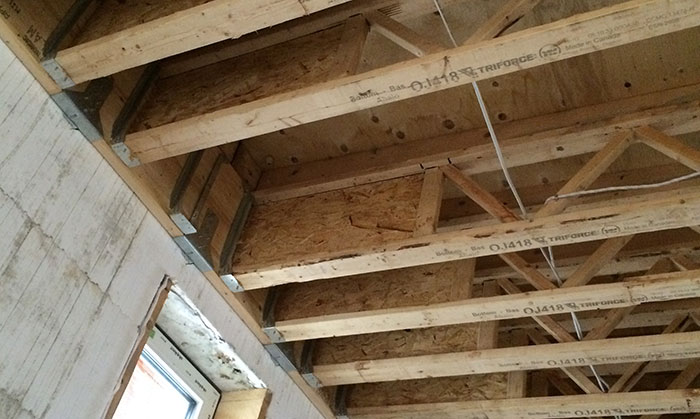
Sometimes hastily taken on-the-spot decisions can start nagging you immediately and not let go. This was the case for one builder on one of my recent calls. A duct chase In this project involving TRIFORCE® open joist, the builder removed a joist to accommodate a duct chase. In the above photo you can see chase’s … Continued
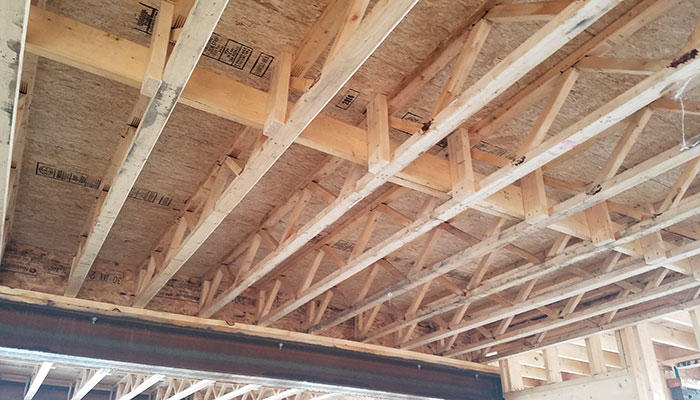
You can go a long way in creating a quality living environment in multifamily units through careful attention to floor assemblies. Improved quality can also reflect positively on your reputation as a builder. In this post, I’ll talk about how to reduce floor vibration, one of the more frequent occupant complaints in multifamily construction. Reduced … Continued

There are so many details that make up a well constructed house. The best way to attend to all of them is to think of the finished product as series of interlocking systems that depend on each other. The structure of a building has a direct impact on how the mechanicals will go into it. … Continued
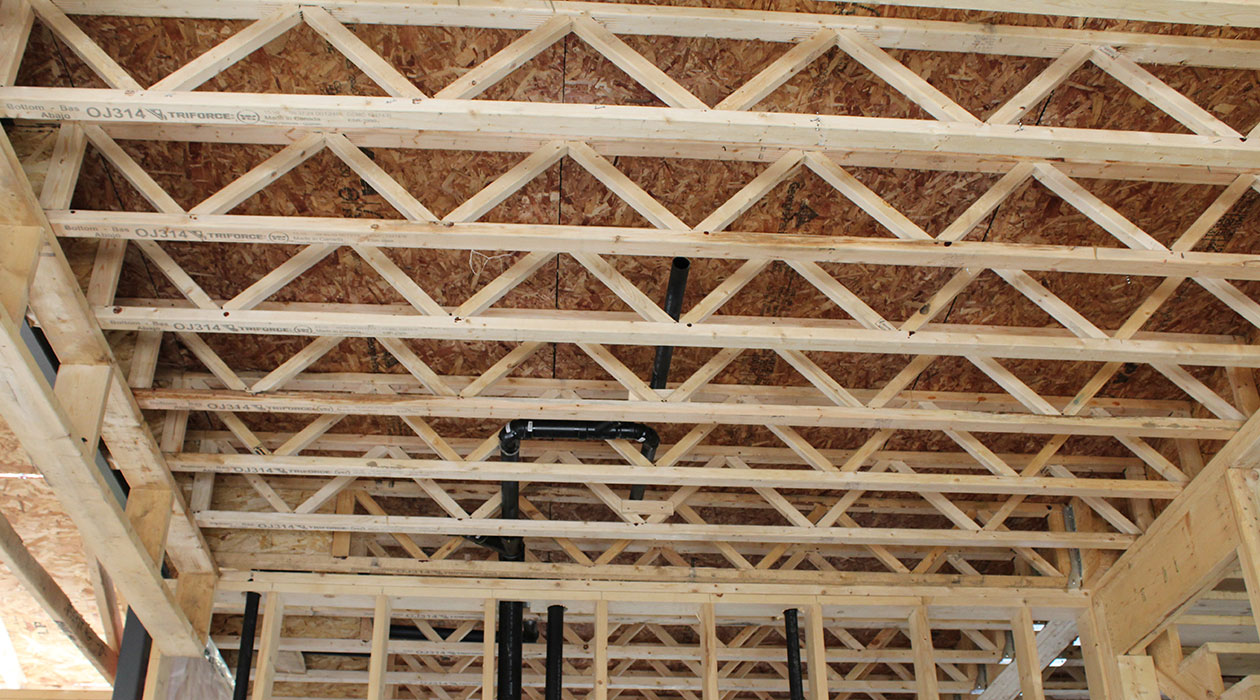
Have you ever taken part in a conversation that involved cutting holes in I-joists? Was it because an improper cut called for a repair? Or was it a communications issue between subcontractors as to the exact placement of the holes? Did you find yourself wishing there was an easier way to just get on with … Continued
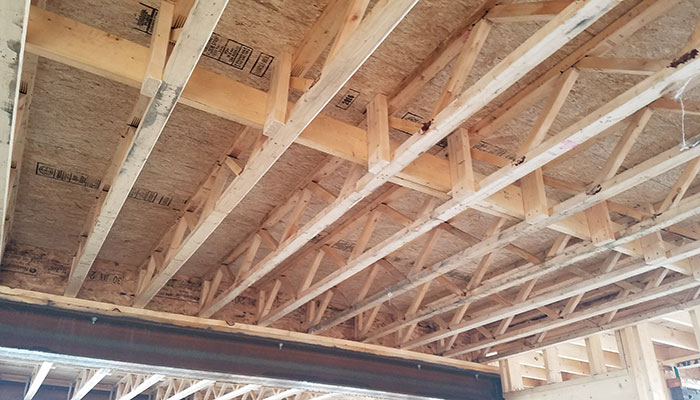
In the second part of this unique look at a big project in Maine, Bill Sweeney, our guest blogger from Coastal Forest Products talks about the detail that convinced the Engineer of Record to replace plated trusses by TRIFORCE®. Again, our thanks to Bill Sweeney TRIFORCE® helped us big time on this project, Part 2 … Continued
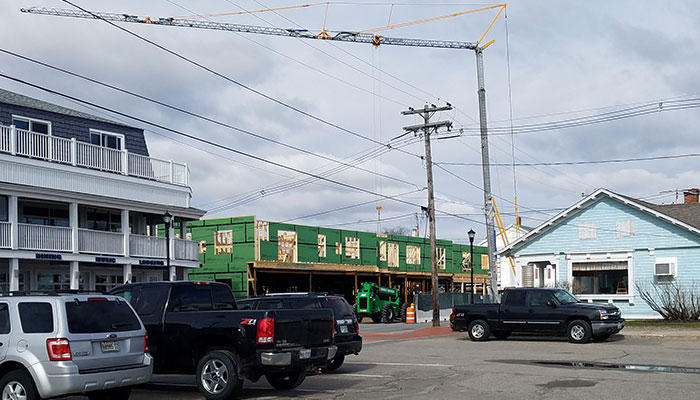
Today we are publishing a guest blog by Bill Sweeney of Coastal Forest Products out of New Hampshire. Bill talked to us about a current project involving TRIFORCE® open joist. This is the first of two blogs on this subject. We’d like to sincerely thank Bill for the time he took to talk to us … Continued
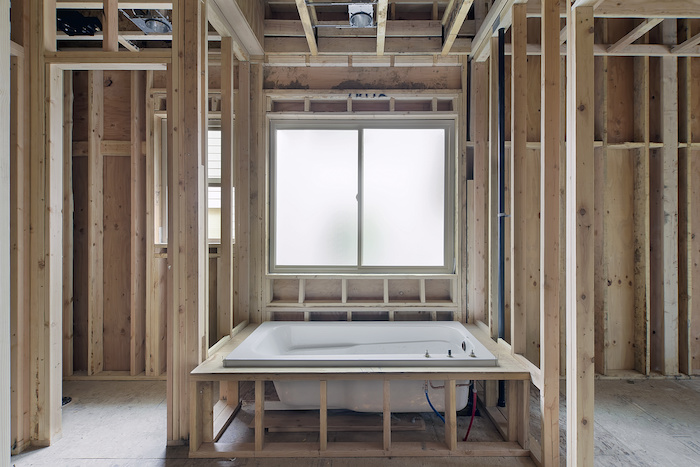
The problem of plumbing drops cutting into floor joists happens so frequently you wonder why this reoccuring issue hasn’t been permanently solved over the last 100 years of residential construction. It is a constant point of contention between construction professionals and a huge waste of everyone’s time. Who gets the blame? I’ve seen more than … Continued
Combining wood and steel in joists is nothing new. But is this combination of materials really the best choice when it comes to handling, installation and long-term use? Last week we looked at wood-steel joists using wood chords with steel webbing. This week, we’ll compare Open Joist Triforce to floor trusses Floor trusses combine a … Continued